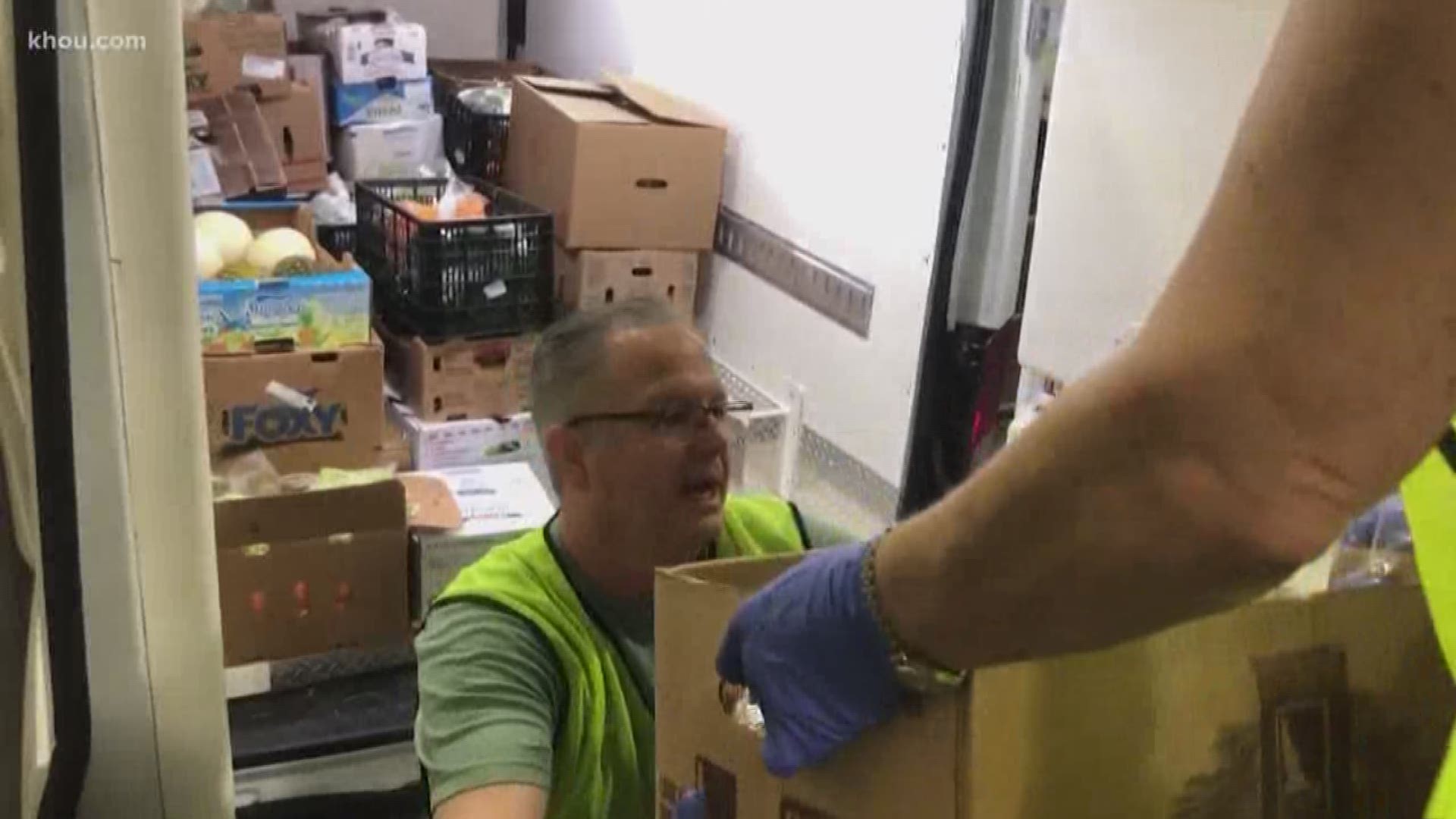HOUSTON — Given these tough times, you wouldn't think there's a surplus of food within the city.
But turns out, there is.
Now, food rescue groups like Second Servings of Houston say they’re busier than ever, but also need volunteers and monetary donations to keep up with the ever-growing demands to help those in need.
It’s an unprecedented amount during an unprecedented time.
Just last month, the organization rescued more than 200,000 pounds of fresh food.
“That’s actually equivalent to over a million dollars’ worth of food,” Torrez said. “It’s been incredible.”
A welcome sight for a food rescue group whose mission is to fight hunger and end waste.
"The food is needed for people around the city that may have not needed the assistance in the past,” said Torrez.
From produce to cooked meals, right now majority of the food is being donated from hotels and large venues impacted by COVID-19.
"Now with business closing, there's even more food out there,” she said.
Perfectly edible meals that would otherwise be thrown away. But, as it’s said, with the good comes the bad.
"We're thankful that we can get that food to charities who need it, but we definitely feel for those people who are losing their jobs and having to get rid of all the food they just stored their fridge with,” Torrez said.
Among the charities teaming up with Second Servings is The Beacon, a rare soup kitchen that's still open.
Saturday morning, The Beacon passed out 400 sacked lunches to the homeless community—sandwiches donated by Honey Baked Ham and delivered by Second Servings.
"It's been really great to make those connections,” Torrez said.
Connections that prove even during the most challenging times, we’re all in this together.
"We're happy to serve our community and do the best we can,” Torrez said.
If you'd like to help support Second Servings, visit their website or follow them on Facebook and Instagram.
RELATED: Texas alcohol distilleries making hand sanitizer for first responders and healthcare workers
Coronavirus symptoms
The symptoms of coronavirus can be similar to the flu or a bad cold. Symptoms include a fever, cough and shortness of breath, according to the Centers for Disease Control. Some patients also have nausea, headaches and stomach issues.
Most healthy people will have mild symptoms. A study of more than 72,000 patients by the Centers for Disease Control in China showed 80 percent of the cases there were mild.
But infections can cause pneumonia, severe acute respiratory syndrome, kidney failure and even death, according to the World Health Organization. Older people with underlying health conditions are most at risk for becoming seriously ill. However, U.S. experts are seeing a significant number of younger people being hospitalized, including some in ICU.
The CDC believes symptoms may appear anywhere from two to 14 days after being exposed.
Human coronaviruses are usually spread through...
- The air by coughing or sneezing
- Close personal contact, such as touching or shaking hands
- Touching an object or surface with the virus on it, then touching your mouth, nose or eyes before washing your hands.
Help stop the spread of coronavirus
- Stay home when you are sick.
- Eat and sleep separately from your family members
- Use different utensils and dishes
- Cover your cough or sneeze with your arm, not your hand.
- If you use a tissue, throw it in the trash.
- Follow social distancing
Lower your risk
- Wash your hands often with soap and water for at least 20 seconds. If soap and water are not available, use an alcohol-based hand sanitizer.
- Avoid touching your eyes, nose, and mouth with unwashed hands.
- Avoid close contact with people who are sick.
- Clean and disinfect frequently touched objects and surfaces.
- If you are 60 or over and have an underlying health condition such as cardiovascular disease, diabetes or respiratory illnesses like asthma or COPD, the World Health Organization advises you to try to avoid crowds or places where you might interact with people who are sick.
Get complete coverage of the coronavirus by texting 'FACTS' to 713-526-1111.

